What is Air Pressure?
 Michael Anissimov
Michael Anissimov
Air pressure basically refers to the volume of air in a particular environment, with greater volumes creating higher pressures. On the earth's surface, for example, it is known as "atmospheric pressure" and refers to the weight of the earth's atmosphere pressing down on everything. Changes in pressure can impact the temperature, weather patterns, and cause physiological problems for people and animals. This pressure can even impact the performance of a basketball or similarly inflated object.
Atmospheric Pressure
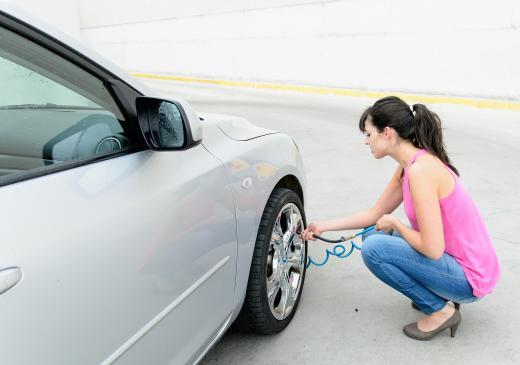
On the earth, the average air pressure at sea level is 1.03 kilograms per square centimeter (kg/cm2) or 14.7 pounds per square inch (psi); this is commonly measured in bars, in which atmospheric pressure is about 1 bar. This means that hundreds of pounds of pressure are pressing on everyone from all sides, at all times. Humans and other animals are able to survive this pressure because their bodies evolved on the surface where it is natural. If the pressure increases or decreases, it can result in discomfort or even death.
Changes in Pressure and Weather

Atmospheric pressure varies slightly over the earth's surface, and variations in pressure are responsible for various types of weather. Low pressure systems are associated with storms, tornadoes, and hurricanes. Sometimes the air pressure at sea level can drop as low as 870 millibars, which is about 85% of average air pressure. This only happens during the most severe storms. Pressure variations on the earth's surface cause wind: as high pressure air moves toward low pressure areas, creating gusts.
Various Pressures at Different Altitudes
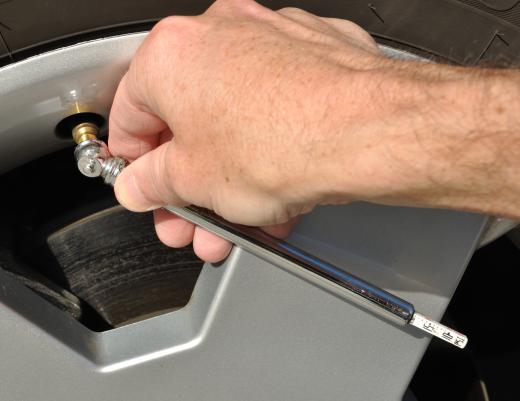
On the top of Mt. Everest, the tallest mountain on earth, the air pressure is just about a third of what it is at sea level. Humans at high altitudes often experience discomfort, such as ear popping, due to differences in their internal and external pressures. At 16 kilometers (km) or almost 10 miles above the surface, slightly higher than the cruising altitude of a typical jet liner, pressure is only 1/10th what it is at sea level. Because low air pressure can be very unpleasant for humans, due to low oxygen content, all areas of aircraft that contain passengers are artificially pressurized. In the event of a rupture in an airplane's fuselage, unsecured items may be "sucked" out of the craft as the high pressure air within it rushes out into the low pressure environment outside.
Higher Altitudes and Outer Space
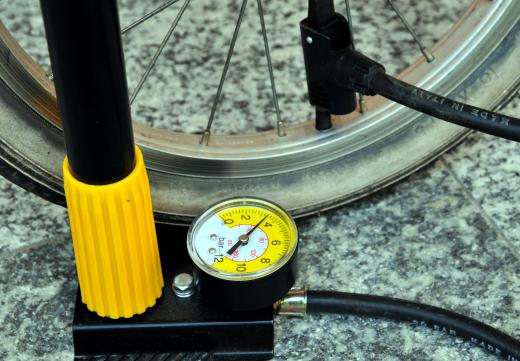
At 31 km or about 19 miles above the earth's surface, in the stratosphere, the air pressure is only 1/100th what it is at sea level. From this level on, the atmosphere quickly deteriorates into nothingness. Above 100 km or just over 62 miles above the surface, the international definition for outer space, the pressure approaches zero and nearly becomes a vacuum. Humans cannot exist unprotected in such a low-pressure environment.
Other Uses for Pressure
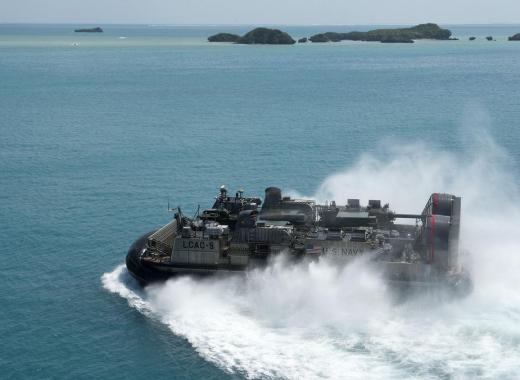
Air pressure is used in a number of commercial applications and consumer products. Pressurized air can be utilized in hydraulic machinery that uses the expansion of air to move different parts. Aerosol canisters use pressurized air to make different chemicals spray out, as the high pressure naturally rushes out into the lower atmospheric pressure when used. Basketballs and similar objects, like tires, are inflated so that they bounce or support other objects. Under-inflation can leave them weakened or less effective, while excess pressure can cause them to burst or more easily rupture during use.
High-Pressure Settings
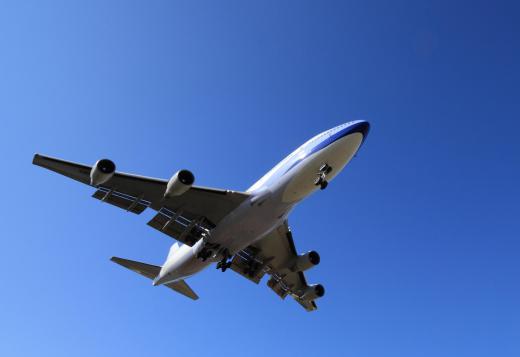
Beneath sea level on the earth, pressure becomes increasingly greater. Under the ocean, for example, high pressure in the water can crush a person or object that is designed to withstand the atmospheric pressure of the planet. Special suits and vehicles are needed to withstand such high pressures.
AS FEATURED ON:
AS FEATURED ON:




















Discussion Comments
@anon56433: Air pressures decide basically how the weather is going to be. High pressure= nice day outside. Low pressure means that it might rain or just be pretty dark outside. I forget why this is, though. Sorry.
What is the effect air pressure has on how a ball bounces?
Why don't humans get crushed by atmospheric pressure, in spite of its large size?
How is air pressure like other pressure?
This is really teaching me a lot about air pressure. I'm doing a project called how does temperature affect air.
@anon29664: That is what my science fair project is. I will tell you the results.
It seems to me that when I go to Colorado, I use up my eye drops more quickly. I speculate that at the lower atmospheric pressure, the size of the drop coming out of the bottle is bigger. True?
Within the ranges you are talking about, the more pressure in a basketball or volleyball, the higher it will bounce or the faster it will be hit. Same with the compression of golf balls. (At very high pressure, it would be like steel and not rebound as fast). Same for golf balls; I can't use the ball Tiger Woods uses, because my swing is too weak to compress the higher compression ball.
Air pressure is pushing down on you equally on all sides so it can't crush you.
How do you figure out how much air pressure there is?
what is a jet stream, and how does it affect weather?
Air pressure is just another wonder that further supports the notion we humans, animals, plants, the earth, the universe, and all that makes up what it is(including air pressure), were created by an all-powerful, all-knowing Creator. I do not agree with the idea that universe somehow just "evolved" into what it is today. I believe without a doubt that God created the universe in six literal days. In my opinion, air pressure just further supports that. Thank you and God bless! He really does love you all!
Does the air pressure in a basketball affect the bounce?
what is air pressure using the particle theory? what is a vacuum?
Answers: no one invented air pressure. People discovered it. Also for all the questions, do some research. You can't expect everyone to give you the answer every time. P.S. This website helps.
Why does air pressure increase in bus and jeepney tires when traveling for a long distance?
Who discovered air pressure?
Does it matter how much air is in your basketball? I need to know how does air pressure affect the bounce of a basketball?
why is it that when solving pressure below sea level, the atmospheric pressure becomes zero even though it is said that the value of the atmospheric pressure at sea level is 101.3 kPa?
how does air pressure happen and why does it happen?
what is the application of the air pressure?
Does the effect of the weight of air occur only downward?
what causes the difference between the air pressure from the roof top and ground floor?
i need to know how does air pressure affect on high a basketball goes in the air? If anybody knows please post it I'm doing a stupid science fair project. Help me!
i want to know what makes air pressure and how does it happen?
this website rocks! i love being a webgeek.
why does air pressure affect the weather?
Does the effect of the weight of air occur only downward?
air pressure sucks. why don't we get crushed by it?
no one invented air pressure!
who is the one who invented the air pressure?
how does air pressure work and affect people's lives?
How dose air pressure affect weather?
it does affect the distance the ball travels. it goes farther because it has air so it stays in the air longer and because it's also heavier.
what is the application of the air pressure?
Does the air pressure in a volleyball affect the distance it travels?
Post your comments